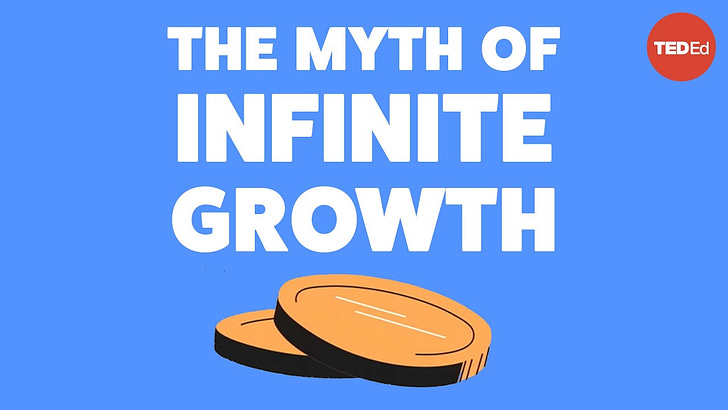Why is growth the holy grail of modern economies?
Unpacking the cycle of consumerism, capitalism, and the global push for more
Why does every politician talk about growth? It’s because governments are hooked too. Increase in a governments revenue comes from an increase in taxation which is based on, you guessed it—growth.
Growth is the foundation of capitalism, as a corporation’s primary obligation is to their shareholders for whom they have to keep delivering increased revenue. Late-stage capitalism1 has driven the need for ever-expanding corporate profits, and it fuels our global addiction to stuff—companies are structured with a need to keep growing, so we are conditioned with a need to keep buying. How do they get people to part with their money for stuff that they don’t need? Advertising, in part. A successful advertising campaign is driven by a good story, so we’re told story after story of why we need this or that, when in reality our lives (for the most part) were just fine as they were.
The truest story is that “they” depend on us to keep spending. Just like the human energy source in The Matrix, our mindless, desperate, or even well-intended spending makes the wealthiest even wealthier—all while doing nothing for our own lives and certainly not for the betterment of the planet. Case in point: if we were to collectively reduce our consumerism by 10 percent, each of us would increase our personal savings by enough to feel more comfortable—and we would likely trigger a global recession.
In fact, this is exactly what happened in Japan when their economy stagnated in the 1990s after its stock market and property bubbles burst. Companies focused on cutting debt and shifting manufacturing overseas, so wages stagnated and consumers reined in spending. This triggered a period of economic stagnation and price deflation known as Japan’s “Lost Decade.” Equity values plunged 60 percent from late 1989 to August 1992, while land values dropped throughout the 1990s, falling an incredible 70 percent by 2001. The Japanese economy eventually outgrew this period, but it did so at a much slower pace than other industrialised nations.
TED video: Can the economy grow forever?
Money is central to almost everything required in every society on earth, and those societies require us to spend, not save it. But how often do we confuse money itself with what we’d like to do with that money, in turn missing the forest for the trees? And do we conflate money with happiness because of the story we’re told about it?
There is more to money than meets the eye, and more money to be had than the advertisers and neoliberalists would have us believe.
With gratitude,
Arunjay.
P.s. if you have read this far, consider restacking this post on Substack or sharing it with your network.
Pp.s. if you’d like a free copy of my book, Generation Hope: How Inclusive Economics Can Help Us All Thrive, please click here.
Late-stage capitalism, in its current usage, is a catchall phrase for the indignities and absurdities of our contemporary economy, with its yawning inequality and super-powered corporations and shrinking middle class.


